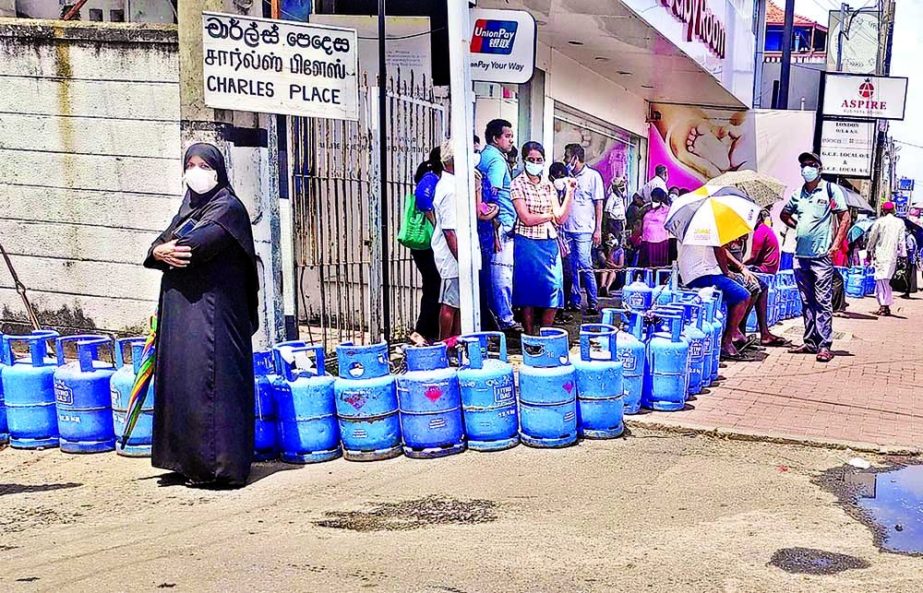
Special Report :
The Central Bank of Sri Lanka recorded barely $1.3 billion US in foreign remittances from citizens living abroad in the first five months of this year, down from $2.8 billion US in the same period last year. According to figures from the World Bank, personal remittances sent home by Sri Lankans two years ago were more than $7 billion US.
When Sri Lankan’s from abroad send money to their families residing locally, the government kept the foreign currency and gave the residents worthless domestic money. This massive flow of foreign currency appears to have formed the foundation of the kleptocracy headed by the ex-prime minister Ranil Wickremesinghe.
Although RMG and textiles account for 56% of Sri Lanka’s exports, these low margin industries barely brought in any foreign currency of a net basis after accounting for associated imports and subsidized energy costs. In fact, throughout the pandemic Sri Lanka actually grew its garments exports relatively in line with previous years. In 2021, Sri Lanka exported US$ 9.7 billion worth of RMG, an increase of 26% from previous year.
Since last fall, when the Central Bank fixed the rupee to the dollar at a rate of 200 to 203 rupees per dollar, outside remittances paid to Sri Lankan banks have decreased. According to Damsinghe, the adjustment had no rhyme or reason, but it did encourage people to use shady wire transfer services where they could obtain a far higher exchange rate.
The government has been urging Sri Lankan expats and overseas employees to move funds through the nation’s banking system for months.
According to the Central Bank of Sri Lanka, foreign bank remittances are a “key pillar” of the nation’s foreign exchange reserves; nonetheless, a move to informal means of transferring money and a lack of faith in the government have caused a sharp decline in foreign remittances. Without additional foreign funds entering the country’s coffers soon, the shortages of food, medicine, and fuel could get worse.
People in lower-paying nations frequently rely on money wired from overseas as a source of disposable cash for food, housing, and even business assistance. Governments like that of Sri Lanka profit from both the increased cash flow and, in particular, the conversion of foreign currency into local currency.
The government has attempted to regulate unauthorized remittance services, provided incentives for using banks, and ultimately unpegged the exchange rate of the rupee to allow for a decline in the rupee’s value relative to the dollar. It has made some difference, but not enough. Even while the volume of remittances the Central Bank recorded increased in May, it was still around 34% lower than it was in the same month last year.
Yesterday, Sri Lanka’s top court on Friday barred former Prime Minister Mahinda Rajapaksa and former Finance Minister Basil Rajapaksa from leaving the country without permission until July 28, anti-corruption group Transparency International Sri Lanka said. Three other former officials, including two former central bank governors, also cannot travel outside the country without the court’s permission till July 28, the group said in a tweet.

